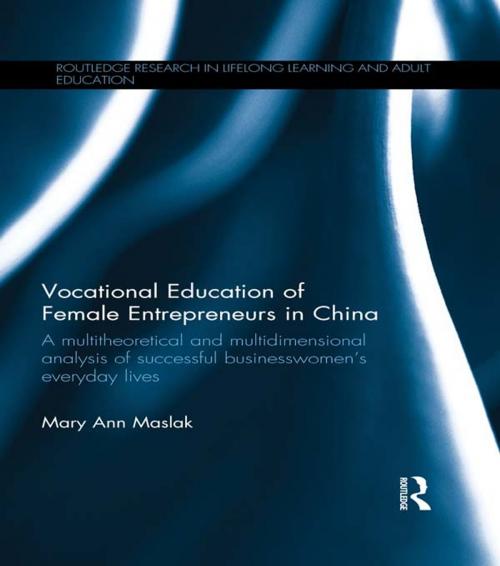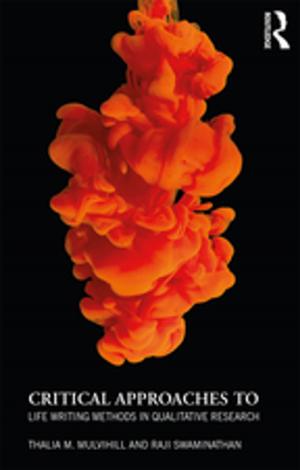Vocational Education of Female Entrepreneurs in China
A multitheoretical and multidimensional analysis of successful businesswomen's everyday lives
Nonfiction, Social & Cultural Studies, Social Science, Sociology, Rural, Reference & Language, Education & Teaching, Educational Theory, Adult & Continuing Education| Author: | Mary Ann Maslak | ISBN: | 9781317803270 |
| Publisher: | Taylor and Francis | Publication: | October 17, 2014 |
| Imprint: | Routledge | Language: | English |
| Author: | Mary Ann Maslak |
| ISBN: | 9781317803270 |
| Publisher: | Taylor and Francis |
| Publication: | October 17, 2014 |
| Imprint: | Routledge |
| Language: | English |
This book examines the ways in which formal and non-formal education can contribute to women’s successful design, development and operation of small businesses in rural settings. Calling on varied, pertinent social theories, the book examines profitable businesses operated by Dongxiang Muslim women in the southern Gansu province of northwestern China. The author explains the multifaceted formula for women's challenges and successes in their business endeavours and goal for financial security. It argues that informal learning is the most important type of education to employ knowledge and skills to earn a living in general, and design and operate small businesses by women in rural areas in particular. The book concludes with an original, timely and necessary model for education that could be utilized by the women in this work; one that positions informal education as the primary conduit for successful entrepreneurial work and combines elements of both formal and non-formal educational principles and practices, thus offering support for the successful operation of women's businesses.
This book examines the ways in which formal and non-formal education can contribute to women’s successful design, development and operation of small businesses in rural settings. Calling on varied, pertinent social theories, the book examines profitable businesses operated by Dongxiang Muslim women in the southern Gansu province of northwestern China. The author explains the multifaceted formula for women's challenges and successes in their business endeavours and goal for financial security. It argues that informal learning is the most important type of education to employ knowledge and skills to earn a living in general, and design and operate small businesses by women in rural areas in particular. The book concludes with an original, timely and necessary model for education that could be utilized by the women in this work; one that positions informal education as the primary conduit for successful entrepreneurial work and combines elements of both formal and non-formal educational principles and practices, thus offering support for the successful operation of women's businesses.















